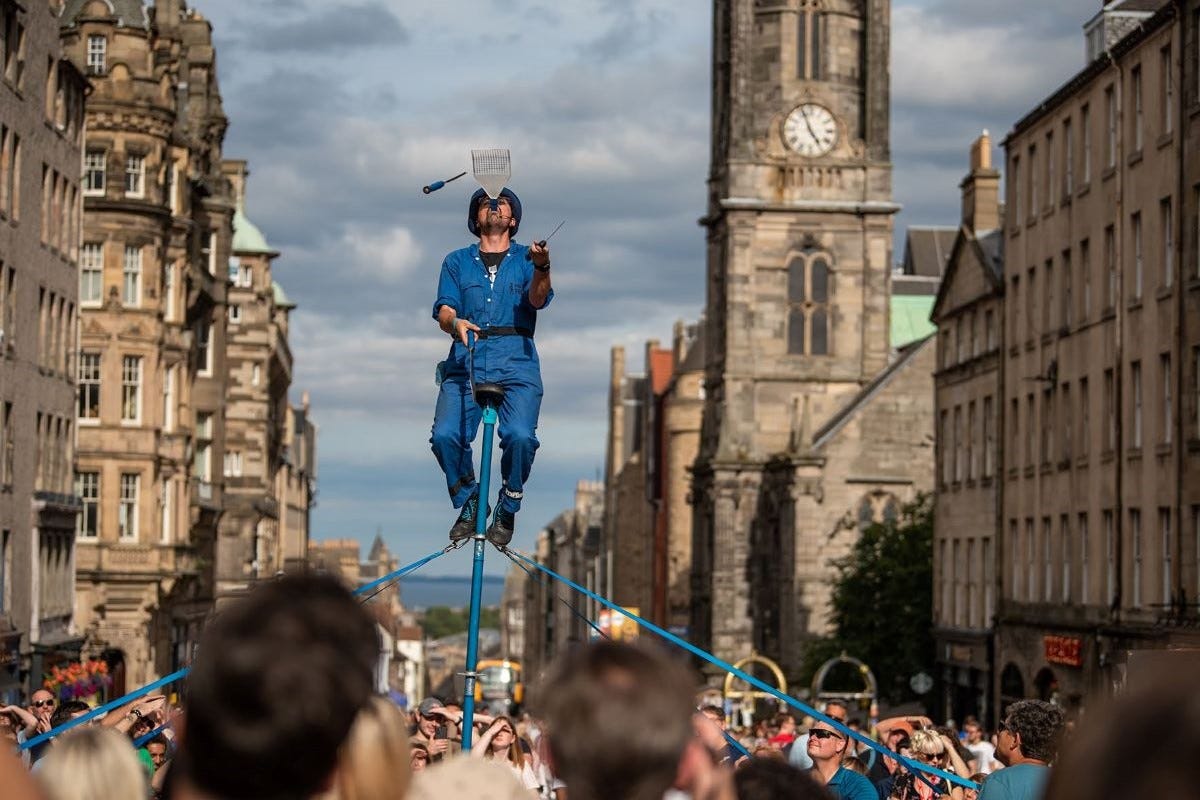As a theatre journalist, you see the industry at its optimistic best and exploitative worst
Could we have one without the other? Was it worth staging Sondheim's last musical? Has technology in theatre gone too far? All in this week's issue of Shouts and Murmurs.
Hello, and welcome to Shouts and Murmurs, a weekly round-up of theatre news, reviews, interviews and more from The Crush Bar, written by Fergus Morgan.
If you are a free subscriber, you can only read the top bit. To access the stuff below the paywall, you have to become a paid supporter of The Crush Bar, which you can do for £50/year or £5/month, which is less than the price of a pint in a theatre bar.
Organisations can also become a champion supporters of The Crush Bar - and get full access, plus the option of having your name on this dedicated tab on The Crush Bar’s Substack page and in the footer of every Friday issue - via the button below.
This is an advance notice that this Friday’s issue of The Crush Bar will be the last for several weeks, while I, a) get married and b) prepare for the Edinburgh Fringe.
Previously in The Crush Bar:
The theatre industry is built on a bedrock of optimism.
I know. That sounds like the sort of thing that you might read on a poster on an incredibly irritating person’s kitchen wall, right next to the cupboard containing their “live, laugh, love” mug, but it is true. Optimism is the fountainhead of everything in theatre. And, as a theatre journalist, you see the consequences of that, good and bad.
Optimism can lead to astonishing, inspiring things. It is the fuel that fires the Edinburgh Fringe, for example. Thousands of optimistic artists arrive in my city every summer in the hope that they might be the next Baby Reindeer. On Wednesday, a further 1564 shows were added to this year’s programme bringing the current total set to perform to 3286, suggesting that it could well end up as the biggest Edinburgh Fringe in history. Producer Francesca Moody announced a new venue, Shedinburgh, too. At the Summerhall programme launch, there was a lot of optimism in the air.
I spotted optimism at work everywhere last week, actually. It was optimism that was behind two brilliant shows I saw: Joseph Farrell’s Scots version of Mistero Buffo at A Play, A Pie and A Pint, with its sensational performance from Lawrence Boothman, and Isla Cowan’s one-woman play Alright Sunshine at the Tron Theatre, with its devastating performance from Dani Heron. It was optimism that led Zachary Hart, who I interviewed on Thursday ahead of his appearance in Stereophonic, to go from forklift-driving factory worker to West End star. It was optimism that led to all the shows that me and and several other critics spent six hours discussing at the annual Critics Awards for Theatre in Scotland judging meeting on Saturday. Maybe it was optimism that led a fellow critic to call me an “absolute c***” for my take on one, too.
Often, though, optimism in the theatre industry is abused. At the same time as producers, PRs, artists and journalists were chatting excitedly about the Edinburgh Fringe at Summerhall, a few miles west of Edinburgh in Livingston, over a hundred young performers were learning that their optimism had been exploited, as the news that the Scottish Institute of Theatre, Dance, Film and Television had gone into liquidation slowly filtered onto social media. Many found out the following day via TikTok. I spent much of the rest of the week cosplaying as Robert Redford in All The President’s Men to get a clear idea of what happened. The details are too complicated to get into here, but long story short: a stuntman-turned-entrepreneur appears to have run a valued drama school into the ground, cost over a dozen employees their jobs, thrown current and prospective students’ futures into jeopardy, then disappeared.
Sadly, this is not a unique situation. Where there is optimism, there are always arseholes looking to take advantage of it, and the theatre industry is no different. Underneath the starry shows, award ceremonies and established organisations is a grubbier world where exploitation is commonplace, a parasitical plethora of flimsy businesses, money-grabbing short-term-let providers and inexpert experts squeezing as much cash from theatremakers as possible. Many of those 3286 Edinburgh Fringe shows will find their optimism exploited in one way or another by the cottage industry that springs up in the Scottish capital every August to prey on them, too.
Is this how it has to be? Is it inevitable that an industry built on optimism will have an exploitative side? Are they two sides of the same coin? Or could the amazing stuff exist without the awful stuff? Can you have the light without the dark? What would that even take? More regulation? Maybe. More money? Probably. More transparency? Definitely. More scrutiny? Likewise. If we somehow manage to achieve all those things, would a better industry be possible? I’m optimistic. But then I work in theatre.
In other news: Jamie Cullum will score Laura Wade’s Royal Shakespeare Company update of The Country House; DCMS has budget has been relentlessly cut and the department might even be abolished; Duncan Macmillan and Jonny Donahue’s Every Brilliant Thing will run @sohoplace from August with Lenny Henry, Ambika Mod and more; Alicia Vikander and Andrew Lincoln will star in Australian auteur Simon Stone’s adaptation of The Lady From The Sea at the Bridge Theatre; ATG has introduced “speedy-boarding” tickets; I’m Sorry, Prime Minister will run in the West End; David Harewood, Toby Jones and Caitlin FitzGerald will star in Othello in the West End; a new “alliance” to support touring theatre has been established; a tour of Jack Thorne’s Let The Right One In has been cancelled; Equity’s annual conference ended yesterday; there is going to be 50 First Dates and Chaka Khan musicals.




